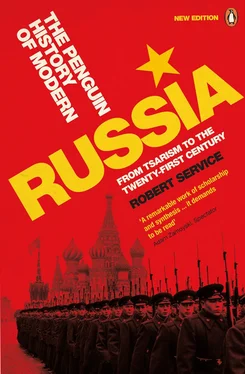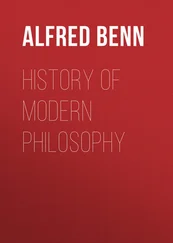Yet the Russians were quickly encircled by German forces. At the Battle of Tannenberg 100,000 Russian prisoners-of-war were taken, and the Germans advanced into Russian-ruled Poland. 3On the Western front, too, Belgium and north-eastern France were overrun by German forces. But the Allies — Russia, France and the United Kingdom — regrouped and the lines were held. Static warfare ensued with two great systems of trenches cutting north to south across Europe. By the end of 1916, the Russian Imperial Army had conscripted fourteen million men, mainly peasants. Russian industrial expansion was substantial; so, too, was the size of Russia’s factory and mining work-force, rising by roughly forty per cent in the first three years of the Great War. 4All classes of the population supported Russian entry into the war and sought victory over Germany and Austria-Hungary. A surge of patriotic feeling was suddenly available to the government.
The Emperor was determined to gain the greatest advantage from the war. Negotiating with the Western Allies in early 1915, his Foreign Minister Sazonov laid down that the Straits of the Dardanelles should be incorporated into the Russian Empire when the Central Powers were defeated. Secret treaties were signed with Britain and France in accordance with these demands. Russian war aims were not simply defensive but expansionist.
All this had to be kept strictly confidential; otherwise the Fourth State Duma might not have rung loud with support for the war when it voted financial credits to the government in January 1915. Only the socialist parties had sections that repudiated the war as an ‘imperialist’ conflict. Yet it was not long before popular antagonism to the monarchy reappeared. The scandalous behaviour of Rasputin, the favourite ‘holy man’ of Nicholas and Alexandra, brought still greater opprobrium on the court. Rasputin was assassinated by a disgusted monarchist, Prince Yusupov, in 1916. But Alexandra’s German ancestry continued to feed rumours that there was treachery in high places. Nicholas II did not help his cause by dutifully deciding to stay at military headquarters at Mogilëv for the duration of the war. Thereby he cut himself off from information about the situation in the capital. The government’s conduct of affairs induced Milyukov, the Kadet party leader, to put the question in the State Duma: ‘Is this folly or is it treason?’ 5
Sharp dilemmas none the less awaited any conceivable wartime administration in Petrograd (the new name for the capital after St Petersburg was judged to be too German-sounding). Food supplies were a difficulty from the start; the task of equipping and provisioning the soldiers and horses of the Imperial armed forces was prodigious. The government showed no lack of will. In the winter of 1915–16 it introduced fixed prices for its grain purchases and disbarred sellers from refusing to sell to it. Nor had Nicholas II entirely run out of luck. Weather conditions in 1916 were favourable and agricultural output was only ten per cent below the record annual level attained in 1909–13. 6And the German naval blockade of the Black Sea had the benefit of preventing the export of foodstuffs and releasing a greater potential quantity of grain for domestic consumption.
All this, however, was outweighed by a set of severe disadvantages for the Russian Empire’s economy after 1914. Sufficient foodstuffs regularly reached the forces at the Eastern front; but the government was less successful in keeping the state warehouses stocked for sale to urban civilians. Among the problems were the peasantry’s commercial interests. Peasants were affected by the rapid depreciation of the currency and by the shortage of industrial goods available during the war; they therefore had little incentive to sell grain to the towns. Certainly there was massive industrial growth: by 1916 output in large enterprises was between sixteen and twenty-two per cent higher than in 1913. 7But the increase resulted almost exclusively from factories producing armaments and other military supplies. About four fifths of industrial capital investment was directed towards this sector, and the production of goods for the agricultural sector practically ceased. 8
No remedy was in sight so long as the country was at war and military exigencies had to dominate industrial policy. Not even the huge state loans raised from the empire’s banks and private investors, from Russia’s allies and from American finance-houses were sufficient to bail out the Imperial economy. 9The government was compelled to accelerate the emission of paper roubles to deal with the budgetary pressures. Rapid inflation became unavoidable.
Transport was another difficulty. The railway network had barely been adequate for the country’s uses in peacetime; the wartime needs of the armed forces nearly crippled it. 10Grain shipments to the towns were increasingly unreliable. Industrialists complained about delays in the delivery of coal and iron from the Don Basin to Petrograd and Moscow. Financiers, too, grew nervous. In 1916 the banks started to exert a squeeze on credit. Each sector of the economy — agriculture, trade, industry, finance, transport — had problems which aggravated the problems in the other sectors. Nor was it human error that was mainly to blame. Not enough Russian factories, mines, roads, railways, banks, schools and farms had attained the level of development achieved by the world’ s other leading powers. A protracted war against Germany — the greatest such power on the European continent — unavoidably generated immense strains.
Nicholas II characteristically fumbled the poor hand he had been dealt. Above all, he continued to treat liberal leaders of the State Duma with disdain; he rejected their very moderate demand for a ‘government of public confidence’ even though it was only by introducing some liberals to his cabinet that he could hope to have them on his side if ever his government reached the point of revolutionary crisis.
The tsar, a devoted husband and father, was more adept at ordering repression than at mustering political support. The Marxist deputies to the Duma, including both Mensheviks and Bolsheviks, were arrested in November 1914 on the grounds of their opposition to the war effort; and the Okhrana broke up the major strikes which occurred across the country in late 1915 and late 1916. The socialist parties survived only in depleted local groups: most Bolshevik, Menshevik and Socialist-Revolutionary leaders were in Siberian exile or Swiss emigration or had withdrawn from political activity. The state’s sole compromise with the labour movement came with its granting of permission to workers to join their employers in electing War-Industry Committees. These bodies were supposed to flush out the blockages in industrial output. But the existence of the Committees allowed work-forces to discuss their grievances as well as any proposals for the raising of productivity — and this gave the labour movement a chance to escape the government’s tight grip. 11
Furthermore, Nicholas II’s very acknowledgement of the necessity of the War-Industry Committees counted against him. Traditionally the emperors had invoked the assistance of ‘society’ only when the state authorities despaired of solving their difficulties by themselves. But the German government was intent upon the dismemberment of the Russian Empire. This was a life-or-death combat for Russia, and the Emperor perceived that his administration could not cope by itself.
The War-Industry Committees were not his only compromise. In 1915 he allowed the municipal councils and the provincial zemstva to establish a central body known as Zemgor . The aim was to enhance the co-ordination of the country’s administration. Zemgor was also authorized to supplement the inadequate medical facilities near the front. But neither Zemgor under Prince Georgi Lvov nor the War-Industry Committees under the Octobrist leader Alexander Guchkov were given much scope for initiative. Frustrated by this, opposition politicians in the State Duma, the War-Industry Committees and Zemgor started to discuss the possibilities of joint action against Nicholas — and often they met in the seclusion of freemason lodges. Thus co-operation grew among the leading figures: Guchkov the Octobrist, Milyukov the Kadet, Lvov of Zemgor and Kerenski the Socialist-Revolutionary. Something drastic, they agreed, had to be done about the monarchy.
Читать дальше












